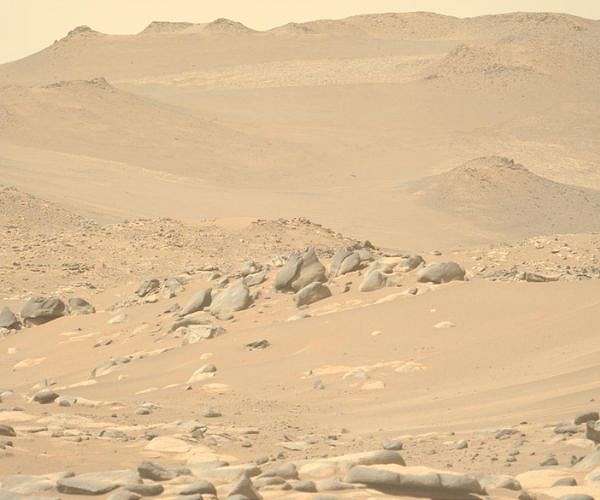Volcanic discovery at Jezero Crater could reshape timeline of Mars
by Clarence Oxford
Los Angeles CA (SPX) Jun 16, 2025
Georgia Tech researchers have determined that a prominent mountain along Jezero Crater’s rim is likely a volcano, offering fresh insight into Martian geology and potentially its habitability. Named Jezero Mons, the mountain spans nearly half the width of the crater and may help refine the planet’s geologic timeline through sample dating.
The findings appear in the journal Communications Earth and Environment under the title “Evidence for a composite volcano on the rim of Jezero crater on Mars.” The study emphasizes how even well-studied areas like Jezero continue to surprise scientists with previously overlooked features.
Lead author Sara C. Cuevas-Quinones, now a graduate student at Brown University, began the investigation while an undergraduate at Georgia Tech through a summer research program. Co-authors include Professor James J. Wray, Assistant Professor Frances Rivera-Hernandez, and Jacob Adler, currently with Arizona State University.
“Volcanism on Mars is intriguing for a number of reasons – from the implications it has on habitability, to better constraining the geologic history,” said Wray. “Jezero Crater is one of the best studied sites on Mars. If we are just now identifying a volcano here, imagine how many more could be on Mars.”
Wray first spotted the mountain in 2007 while viewing low-resolution images. Though it resembled a volcano, the focus at the time was on Jezero’s watery past, located on the opposite side of the 28-mile-wide crater. That changed with the arrival of NASA’s Perseverance Rover, which unexpectedly encountered volcanic rather than sedimentary rocks.
The chance to investigate arose when Cuevas-Quinones joined Wray’s team in a Research Experience for Undergraduates (REU) program. Drawing on earlier work by Purdue University’s Briony Horgan, the team reanalyzed existing spacecraft data, including from Mars Odyssey, Mars Reconnaissance Orbiter, ExoMars Trace Gas Orbiter, and Perseverance itself.
“We can’t visit Mars and definitively prove that Jezero Mons is a volcano, but we can show that it shares the same properties with existing volcanoes – both here on Earth and Mars,” Wray noted.
Cuevas-Quinones said the project helped her realize the power of combining diverse datasets. “After Jezero Mons, it became clear to me that I would continue to study Mars and other planetary bodies,” she said.
The presence of a volcano near what was once a lake environment raises the possibility of ancient hydrothermal systems – energy sources that could have supported microbial life. Moreover, volcanic rock samples retrieved by Perseverance could be radioisotope dated if returned to Earth, offering precise chronological data for Mars.
“The coalescence of these two types of systems makes Jezero more interesting than ever,” Wray said. “We have samples of incredible sedimentary rocks that could be from a habitable region alongside igneous rocks with important scientific value.”
Research Report:Evidence for a composite volcano on the rim of Jezero crater on Mars
Related Links
College of Sciences | Georgia Tech
Mars News and Information at MarsDaily.com
Lunar Dreams and more

